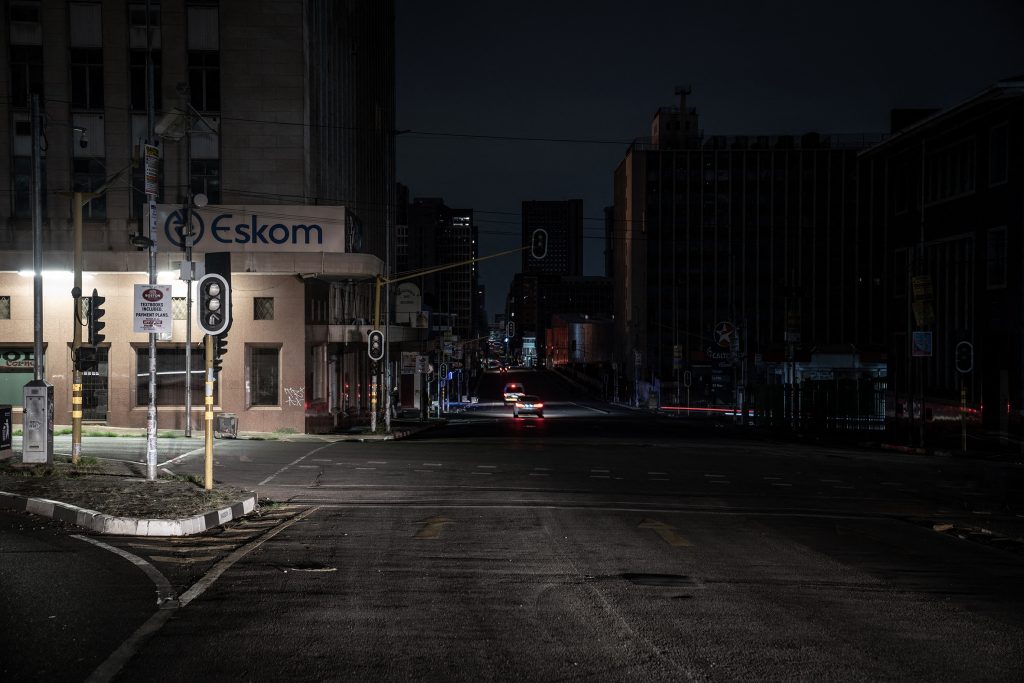You can also listen to this podcast on iono.fm here.
JEREMY MAGGS: Eskom continues to grapple with a deepening crisis as the nation’s power supply now teeters on the edge of catastrophe, we are struggling to meet escalating demand and none of this is helped by growing antagonism among leading players. The utility holding a briefing earlier today, it was covered by senior Rapport journalist, Antoinette Slabbert, who joins us on Moneyweb@Midday. Antoinette, the group (acting) chief executive officer, Calib Cassim, saying the risk of stage eight load shedding this winter is extremely high. This is of great concern.
ANTOINETTE SLABBERT: Indeed, Jeremy, I’m afraid we are in really deep trouble. What concerns me is also that the assumptions in that winter forecast of Eskom is quite conservative. For example, they say that if the unplanned breakages are or as much as 18 000 megawatts (MW), then we will have stage 8 load shedding every day, stage 7 and 8 in May and June and stage 8 in July and August.
But in the recent past, it has been more than 18 000 MW, it has even gone beyond 19 000 MW. Then they are basing their forecast on temperatures of about 32 or 33 degrees Celsius, whereas they also say that an extremely cold winter is being forecast.
So if we see colder temperatures and we see higher breakdowns, and then there’s the possibility of industrial action as well, it can even be worse than that. It is really very concerning.
Read:
Eskom warns SA faces record power cuts this winter
Measures in place to avoid a grid collapse – Eskom
Winter of discontent looms as Eskom races against time
JEREMY MAGGS: It’s very concerning, whichever way you look at it. He was also saying that we have to live with a baseline of stage 5 this winter. That’s a given now, isn’t it?
ANTOINETTE SLABBERT: That’s true, yes. They’re talking about stage 5 and that is based on 15 000MW of breakdowns, which (is) in the last few weeks. I don’t think we’ve seen much of that, that is a “low level” of breakdowns. Ja, we’ve been at much higher levels recently.
JEREMY MAGGS: Then in terms of mitigation, Antoinette, Eskom also saying that it’s going to cut planned maintenance to try and conserve megawatts wherever it can. Also turning to its open cycle gas turbines (OCGTs) and burning more diesel to try and keep the lights on. Again, neither of those two options bring us any comfort at all, do they?
ANTOINETTE SLABBERT: Exactly, and just to give you an idea of the intensity of the use of the OCGTs, in earlier years that was used at a load factor of 1%. In other words, 1% of the time that electricity is generated, these plants are in use. Then it increased to about 6%.
Now they’re planning for 20%, and that is not what these plants are designed for, they are designed to just help us through the peak every evening.
JEREMY MAGGS: Were any questions asked, Antoinette, about grid collapse?
ANTOINETTE SLABBERT: Yes, Eskom was at pains to explain that higher levels of load shedding does not necessarily mean we are closer to a grid collapse because load shedding is exactly the mechanism to prevent a grid collapse. But I think more and more people are getting more concerned about this possibility.
JEREMY MAGGS: One can always read into a briefing like this a lot from tone and manner. It was addressed by, as I say, the chief executive Calib Cassim, also the chairman, Mpho Makwana. What was the tenor, did they seem concerned? What was the mood?
ANTOINETTE SLABBERT: No, they are definitely very concerned. They go beyond saying the winter is going to be challenging, they’re saying it’s going to be a very difficult winter. The plan is very tight. In other words, the plan is conservative.
Then what also stood out for me is that Eskom is now increasingly looking at consumers to limit their demand.
For example, they are now asking us to not have our inverters, those who have it, have that kick in immediately when electricity returns after load shedding. They want to delay that return, that the use of the inverters when power returns because when all those inverters kick in it at the same time, it creates another peak.
So now we’re even being told that when we have electricity, we must delay using it. It’s getting to a point where one doesn’t really know what to do.
Read:
Eight hacks for living with load shedding
Caleb Cassim in China as SA grapples with acute outages
Ask Gordhan for name of politician implicated in Eskom graft – De Ruyter tells Scopa
JEREMY MAGGS: Was any reference made to André de Ruyter during this briefing?
ANTOINETTE SLABBERT: Yes, the chairperson of the board said André de Ruyter transgressed several laws and rules and contract provisions by speaking out and also publishing the book, issues around confidentiality, issues about access to information given to other people, and the board is looking at what they can do about this.
He said the company secretary is compiling a report in collaboration with legal experts, and we will have to see what comes from that.
JEREMY MAGGS: Antoinette Slabbert, thank you very much.
Listen/read: Gas-to-power ships deal ‘stinks’

